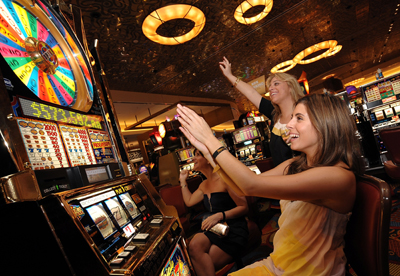
Casino entertainment have long been a staple in human culture, offering not just entertainment but a captivating reflection of our dreams, wishes, and fears. From the rotating wheels of a slot machine to the tactical play of poker, these games embody a spectrum of human feelings and events. At their core, casino games are more than a chance to win money; they are a microcosm of life itself, where risk versus reward converge and fortunes can change in an eye blink.
As players gather around tables or sit in front of brightly lit machines, they participate in a tradition that transcends mere betting. These games echo our innate desires for social interaction, thrill, and the pursuit of luck. They also unveil deeper truths about human nature, such as our relationship with chance and the thrill of uncertainty. In exploring casino games, we discover not only the nuances of play but also the rich tapestry of the human experience, showcasing our intertwining narratives of aspiration and reality.
The Psychology of Gambling
Wagering is intrinsically connected in human psychology, appealing to various emotions and wants. The thrill of taking risks is a fundamental aspect that draws players in, whether it’s excitement of spinning a roulette wheel or the excitement of drawing a winning hand in poker. This rush of adrenaline is often compared to other forms of thrill, as the unpredictability of outcomes elicits a unique psychological response. Gamblers often become captivated by the chance of striking it rich, leading to an almost magnetic draw toward gambling games.
Additionally, an essential component of the psychology behind gambling is the concept of hope and aspiration. Players often indulge in dreams of financial freedom and the opulent lifestyle that can accompany winning. This hope fuels their ongoing participation in gambling, as it provides a sense of purpose and the belief that a transformative win could be just one wager away. The narrative of beating the odds and achieving success resonates with many, reinforcing their commitment to play and involve themselves with these games.
Lastly, social aspects play a crucial role in gambling psychology. Gambling venues are designed to foster social interaction, where gamblers gather to share the experience of wins and losses. This shared aspect not only amplifies enjoyment but also affects behavior, as individuals often imitate the actions of others in their vicinity. The social validation found in shared excitement can magnify the emotional experience, making casino games a mirror of not just personal desires but also collective engagement within the gambling community. Gacam888
## The Dual Nature of Risk and Reward
Gambling activities embody the delicate balance between danger and gain that resonates deeply with human psychology. The thrill of placing a bet is often accompanied by a jolt of energy, as participants are confronted with the chance of striking it rich, yet fully aware of the risk to suffer losses. This twofold experience reflects a core aspect of life: the decisions we face often come with intrinsic risks, and the pursuit of reward can compel us to embrace risks we might not otherwise consider. In this way, gambling activities reflect real-world decisions, enticing gamblers to risk not just their money, but also their hopes.
The allure of big prizes and payouts fuels a wave of hope, motivating players to dream of a more promising future that could arise from a fortunate turn of the wheel or flip of a card. This hope can motivate individuals to engage in greater risks, urging them to extend their limits in search of financial gain. However, just as in life, the outcomes of these decisions can lead to both triumph and despair. The stories of both jackpot winners and those who have lost everything at the casino demonstrate the random nature of luck and its impactful effect on our futures.
Ultimately, the interaction of engaging with gambling activities serves as a vivid illustration of the human condition. Every game played is loaded with the tension of uncertainty, as players weigh the rewards against the risks. This interaction not only highlights the excitement that comes with gambling but also unveils the weaknesses that come with the longing for more. As we navigate the complexities of choice and results in both the gambling world and in life, we find that the quest for gain shapes our sense of self and experiences in profound ways.
Community and Solitude in Casino Culture
Gambling environment is a distinct blend of social interaction and personal endeavor, reflecting the contrasts of individual experience. Players often gather around tables, sharing in the thrill of the game, celebrating wins, and sympathizing over losses. This social aspect is vital, as it creates a sense of belonging and bonding among varied groups of people. Regular attendees to casinos may build friendships and establish routines, turning the gambling venue into a second home where they experience linked to a larger community of gamblers.
However, the allure of casino games can also lead to isolation. As individuals become engrossed in the excitement of playing, they may isolate from personal relationships or neglect to interact with the environment outside the gaming space. For some, the pursuit of a windfall can distract from genuine relationships, leading to loneliness. The experience of being surrounded people yet feeling solitary is not uncommon, as the attention shifts from shared enjoyment to the private stakes of each player’s journey.
This interaction of society and isolation creates a rich tapestry that defines gaming atmosphere. It highlights the intricacy of social interactions, where happiness and sorrow exist together. Gambling venues serve as both a sanctuary for social interaction and a stage for individual challenges, demonstrating how deeply entwined our yearning for connection and the individual quest for fortune can be. In navigating this landscape, players confront their own narratives—seeking both the rush of the wager and the companionship of other gamblers, eventually reflecting the broader spectrum of human experience.